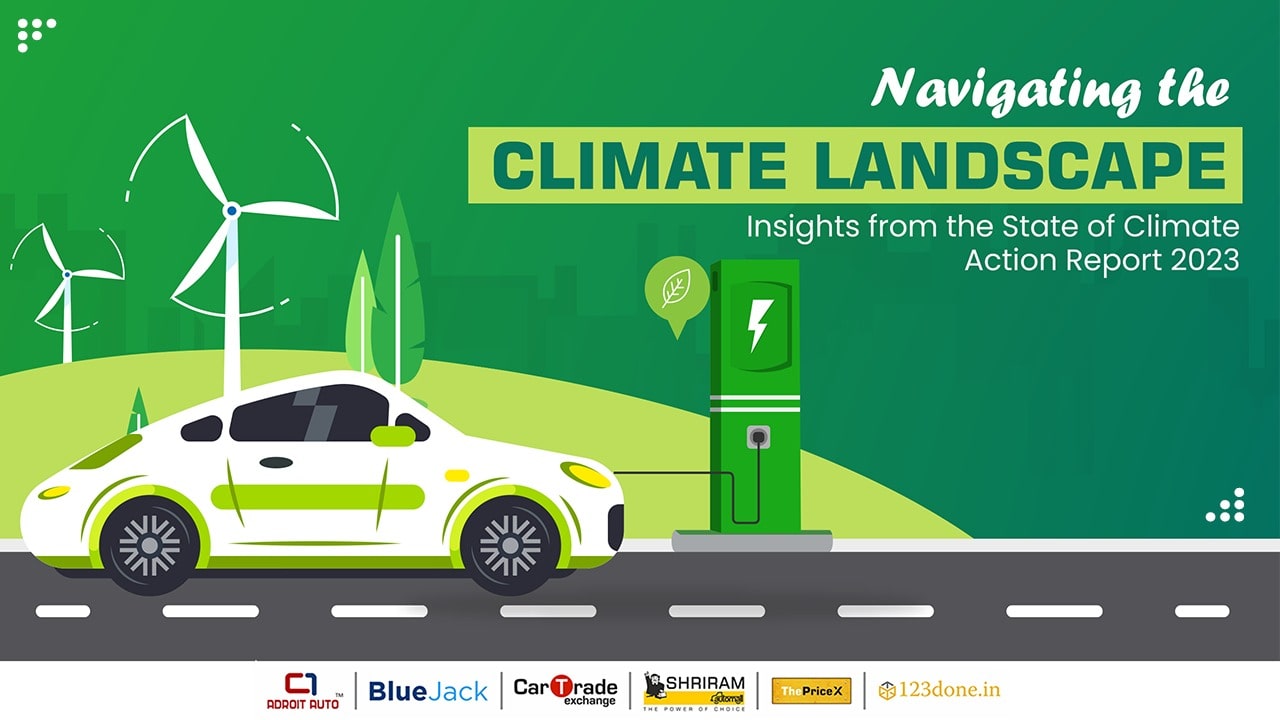State of Climate Action Report 2023 Revealed EVs to be Crucial
Over 15,000 dealer partners across 27,000 outlets nationwide engaged in planting of saplings on Tuesday.

The State of Climate Action Report 2023, as presented by the World Resources Institute, offers crucial insights into the progress and challenges in combating climate change. Among the 42 indicators of sectoral climate action scrutinized in the report, the noteworthy finding is that only the share of Electric Vehicles (EVs) in passenger car sales is on course to meet its 2030 target. This indicates a pivotal role for EVs in addressing climate concerns.
However, beyond the promising trajectory of EVs, the report paints a mixed picture. Urgent attention is demanded in areas such as coal phase-out from electricity generation, where the current pace needs to be seven times faster than recent rates. Another critical concern is the alarming rate of deforestation, equivalent to 15 football fields per minute in 2022, requiring a fourfold increase in mitigation efforts. The report highlights the need for accelerated actions across power, buildings, industry transport, forests and land, food and agriculture, technological carbon removal, and climate finance.
Of the 42 indicators assessed, a staggering 24 are significantly off track to achieve their 2030 targets, necessitating a twofold acceleration in recent rates of change. Moreover, six indicators are moving in the wrong direction, signifying the urgent need for corrective measures. Within this subset of lagging indicators, three areas experienced concerning setbacks in the most recent year of data. Efforts to eliminate public financing for fossil fuels faced obstacles, deforestation reduction witnessed setbacks, and the expansion of carbon pricing systems encountered challenges.
The report sheds light on the complexity of the challenge, especially in areas where progress is lagging. For instance, public financing for fossil fuels exhibited a sharp increase in 2021, doubling from the previous year and reaching the highest levels seen in almost a decade. This underlines the persistent struggle in diverting financial support away from environmentally harmful practices.
On a positive note, the report underscores the success story of the EV sector, which has witnessed exponential growth. Electric cars constituted 10% of all new cars sold in 2022, showcasing a remarkable ascent from 1.6% in 2018. This growth is a testament to the increasing popularity and acceptance of EVs, contributing significantly to the reduction of greenhouse gas emissions in the road transport sector.
Despite the commendable progress in the EV market, the report emphasizes that efforts to increase climate investment remain woefully slow. While global climate finance flows reached a historic high in 2021, reaching $850 billion to $940 billion, representing a 27% increase from the previous year, the growth trajectory falls short of the $5.2 trillion per year needed globally by 2030. The need for enhanced funding is particularly acute in developing countries, where the report highlights a significant gap between current climate investment and the required levels.
In conclusion, the State of Climate Action Report 2023 provides a comprehensive overview of the achievements and challenges in the global effort to combat climate change. It underscores the critical role of EVs in meeting climate targets while emphasizing the need for accelerated action across various sectors to address the complex and interconnected challenges posed by climate change.

 Download Our App
Download Our App



